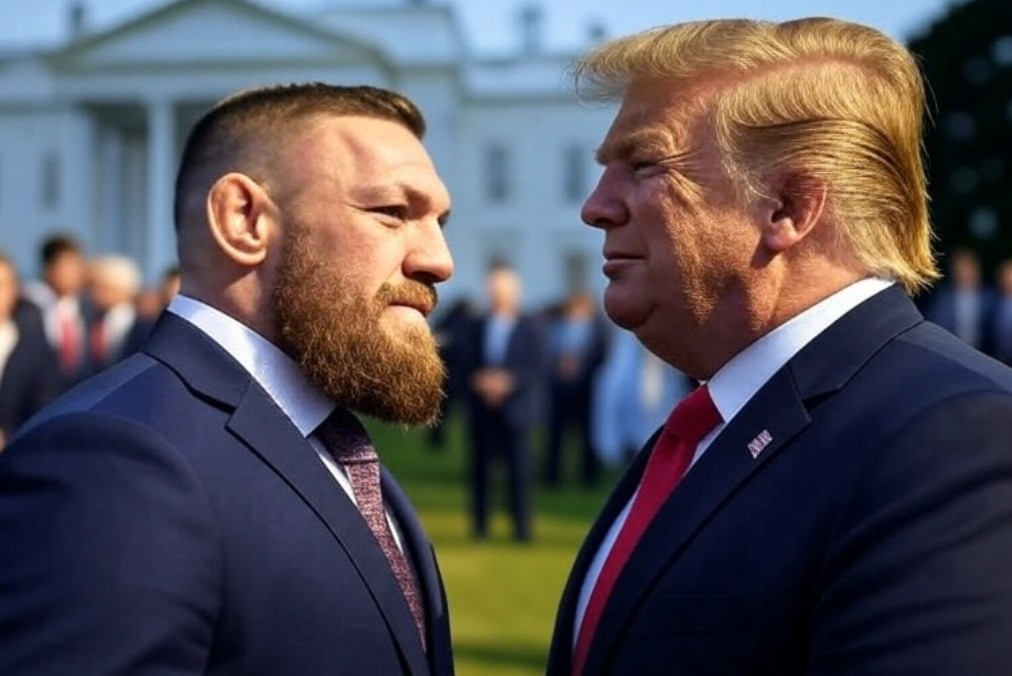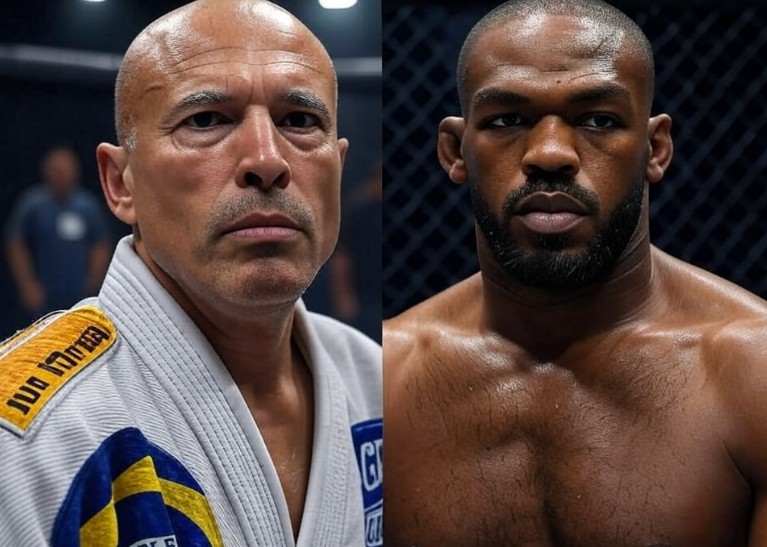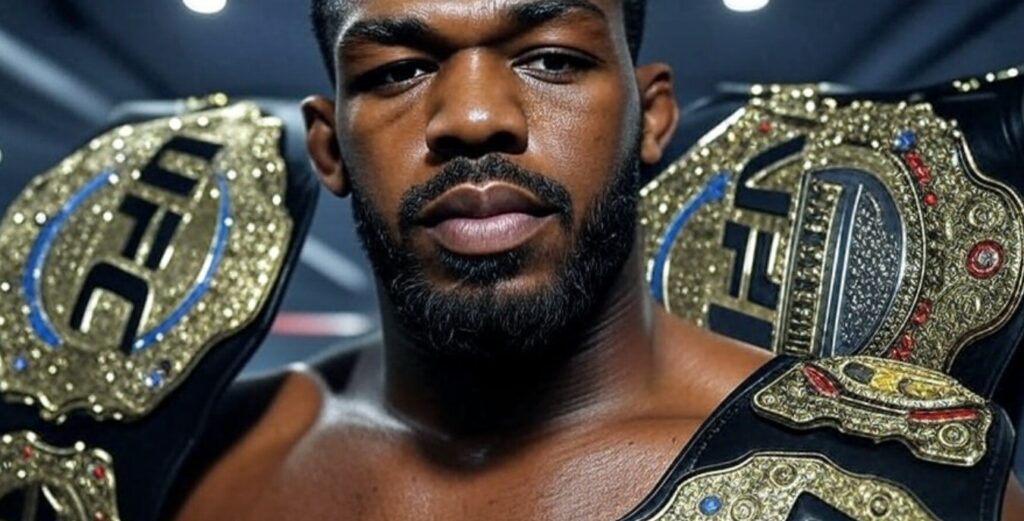
On July 4, 2025, as fireworks lit up the American sky in celebration of the nation’s independence, Conor McGregor, the former two-division UFC champion, set the combat sports world ablaze with a single post on X: “Happy 4th of July, USA. Excited with President Trump announcing a UFC fight event at the White House. I would be honoured! Count me in! ”
This electrifying message, posted at 2:44 PM +03, sent shockwaves through the MMA community, reigniting discussions about McGregor’s return to the octagon, the audacious concept of a UFC event on the White House lawn, and the intersection of sports, politics, and spectacle in modern America. In the days that followed, McGregor’s words became the spark for a broader conversation about his legacy, the UFC’s evolution, and the cultural implications of such an unprecedented event. This article delves into the context, implications, and potential ramifications of McGregor’s post, exploring its significance from every angle.
The Context: A Nation’s Milestone and a Showman’s Vision
The backdrop to McGregor’s post was a bold announcement made by President Donald Trump during a speech at the Iowa State Fairgrounds on July 3, 2025. As part of the “America 250” celebrations marking the United States’ 250th anniversary of independence in 2026, Trump proposed hosting a UFC fight on the White House grounds.
The idea was quintessential Trump—a blend of grandeur, populism, and showmanship. “We’re going to have a UFC fight, think of this, on the grounds of the White House,” he declared to a roaring crowd. “We have a lot of land there… a championship fight, full fight, like 20 or 25 thousand people.” The announcement, confirmed by UFC officials and enthusiastically endorsed by UFC President Dana White, was not just a sporting proposition but a cultural statement, aligning the raw intensity of mixed martial arts with the patriotic fervor of America’s milestone birthday.
Trump’s relationship with the UFC is well-documented. A longtime fan, he has attended numerous events, including UFC 316 in Newark, New Jersey, in June 2025, and has hosted fights at his properties, such as UFC 31 at Trump’s Taj Mahal in Atlantic City. His friendship with Dana White, who spoke at Trump’s campaign rally at Madison Square Garden in October 2024 and introduced him at the 2024 Republican National Convention, has cemented the UFC’s place in his orbit.
The White House event, slated for July 4, 2026, is envisioned as a spectacle to rival any in sports history, with White himself calling it “epic” in an Instagram Stories post. For McGregor, a fighter whose career has been defined by spectacle, the opportunity to compete in such a setting was irresistible.
McGregor’s Post: A Call to Arms or a Strategic Ploy?
McGregor’s July 4th post was classic “Notorious”—bold, brash, and perfectly timed to capture maximum attention. The 36-year-old Irishman, who has not fought in the UFC since a gruesome leg injury in his July 2021 loss to Dustin Poirier at UFC 264, has kept fans on edge with repeated teases of a comeback. His scheduled bout against Michael Chandler at UFC 303 in June 2024 was canceled due to a toe injury, fueling speculation about his commitment to fighting amid his ventures into acting, business, and politics. Yet, the White House event, with its historic and symbolic weight, seems to have rekindled McGregor’s fire.
The post itself was concise yet loaded with intent. The American and Irish flag emojis underscored McGregor’s dual identity as a global superstar with deep ties to both nations. The phrase “I would be honoured! Count me in!” was a departure from his usual bravado, striking a tone of reverence for the occasion. The excited emoji and shamrock added a touch of his trademark flair, ensuring the message resonated with his millions of followers. Within hours, the post had garnered thousands of likes, retweets, and comments, with fans, analysts, and fellow fighters weighing in on the prospect of McGregor headlining a White House card.
But was this a genuine commitment or a calculated move to stay relevant? McGregor’s career has been as much about mastering the art of publicity as it has been about fighting. His ability to generate headlines—whether through trash-talking, whiskey brand launches, or political commentary—has kept him in the spotlight even during his four-year hiatus from the octagon. Some skeptics on X suggested McGregor was seizing the moment to reassert his relevance, with one user commenting, “Conor’s just hyping himself up again—will he even be cleared to fight by then?” Others, however, saw it as a sincere declaration, noting his longstanding admiration for Trump and his history of embracing high-stakes opportunities.
The White House Event: Logistics and Symbolism
The concept of a UFC fight on the White House lawn is as audacious as it is logistically complex. The White House, a symbol of American power and prestige, has never hosted a professional sporting event of this magnitude. Trump’s claim of accommodating 20,000 to 25,000 spectators raises questions about feasibility, given the South Lawn’s limited space. Security, infrastructure, and public access would require unprecedented coordination between the UFC, the Secret Service, and local authorities. White House Press Secretary Karoline Leavitt emphasized Trump’s seriousness about the plan, stating, “He’s dead serious,” but details remain scarce. A UFC official confirmed to CNN that discussions are underway, but no specific date or format—whether a single fight or a full card—has been finalized.
The symbolism of the event cannot be overstated. The White House, as the epicenter of American governance, hosting a UFC fight would blur the lines between sport, politics, and entertainment in a way that resonates with Trump’s brand. MMA, with its raw physicality and appeal to a younger, predominantly male demographic, aligns with the “fighter” persona Trump has cultivated. His 2024 campaign leaned heavily on this demographic, tapping into male-oriented podcasts and emphasizing traditional notions of strength and resilience. A White House UFC event would be a natural extension of this strategy, turning the presidential grounds into a modern-day colosseum.
For McGregor, the event represents a chance to cement his legacy. A fight on the White House lawn, potentially against a high-profile opponent like Michael Chandler, would be a career-defining moment. McGregor’s history of making history—becoming the first UFC fighter to hold titles in two divisions simultaneously, headlining the promotion’s debut at Madison Square Garden, or facing Floyd Mayweather in a boxing megafight—makes him the perfect candidate to headline such an event. His post on X suggests he sees it as more than just a fight; it’s a chance to be part of a cultural milestone.
McGregor’s Comeback: The Road to 2026
McGregor’s enthusiasm for the White House event comes at a critical juncture in his career. At 36, he faces mounting questions about his ability to return to elite-level competition. His last victory was a 40-second knockout of Donald Cerrone in January 2020, and his subsequent losses to Poirier, coupled with injuries, have cast doubt on his physical prime. A toe injury in 2024 derailed his planned fight with Chandler, and his absence from the UFC’s anti-doping program in 2025 means he must re-enter and submit to testing before being cleared to compete. The timeline for the White House event—July 4, 2026—gives him over a year to prepare, but the road ahead is fraught with challenges.
Training for a high-stakes fight requires McGregor to rediscover the discipline that made him a champion. His lifestyle outside the octagon—marked by lavish spending, legal troubles, and ventures like his Proper No. Twelve whiskey brand and a role in the “Road House” remake—has drawn criticism from those who believe he’s lost focus. A November 2024 jury ruling in a sexual assault lawsuit in Dublin, along with a recent video of him punching a man in an Ibiza nightclub, has further complicated his public image. Yet, McGregor’s resilience is undeniable. His ability to reinvent himself, from a brash up-and-comer to a global icon, suggests he could rise to the occasion.
The potential matchup with Michael Chandler, teased in McGregor’s follow-up post featuring an AI-generated image of the two facing off in suits on the White House lawn with Trump smiling in the background, adds intrigue. Chandler, a fan favorite known for his relentless style, has been vocal about wanting to fight McGregor since their time as opposing coaches on “The Ultimate Fighter” in 2023. Their canceled UFC 303 bout left fans clamoring for resolution, and a White House setting would elevate the stakes to unprecedented heights. However, Chandler’s recent loss to Paddy Pimblett at UFC 316 in June 2025 has raised questions about his form, making the matchup’s appeal contingent on both fighters’ ability to deliver.
The Cultural Impact: MMA, Politics, and the American Psyche
McGregor’s post and the White House UFC event tap into deeper currents in American culture. The UFC’s rise from a fringe spectacle to a mainstream sport mirrors the nation’s evolving appetite for raw, unfiltered entertainment. Trump’s embrace of the UFC reflects his understanding of this shift, positioning himself as a champion of the “everyman” who values strength, competition, and spectacle. McGregor, with his larger-than-life persona, embodies this ethos, making his involvement in the event a natural fit.
The event also raises questions about the politicization of sports. Critics, including some on X, have called the idea “disgraceful,” arguing that turning the White House into an arena cheapens its historical significance. Others see it as a bold celebration of American freedom, with one user posting, “South Lawn. 20,000 fans.
Pure chaos incoming” The polarized reactions reflect the broader divide in how Americans view Trump’s presidency and his penchant for spectacle. For McGregor, whose March 2025 White House visit included criticism of the Irish government, the event offers a platform to further his political ambitions, particularly his quixotic interest in running for president of Ireland.
The global implications are equally significant. McGregor’s involvement would draw international attention, reinforcing the UFC’s status as a global brand. His Irish roots and outspoken nationalism could make the event a cultural bridge, celebrating the shared history of the U.S. and Ireland. However, his controversial persona—marked by legal issues and provocative rhetoric—could also invite scrutiny, particularly in a setting as symbolically charged as the White House.
The Fan Reaction: Excitement, Skepticism, and Speculation
The MMA community’s response to McGregor’s post was a mix of excitement and skepticism. Fans on X flooded the platform with reactions, ranging from enthusiastic support to cautious doubt. “Conor at the White House? This is gonna be the biggest fight in UFC history,” one user wrote, while another quipped, “He’s been ‘coming back’ for years—wake me up when he actually steps in the cage.” Dana White’s reply to McGregor’s voice message, “I LOVE IT!!!!,” amplified the hype, with White’s enthusiasm signaling the UFC’s commitment to making the event a reality.
Fellow fighters also chimed in. Sean Strickland, known for his unfiltered takes, posted, “McGregor at the White House? That’s America, baby!” Meanwhile, analysts speculated about potential opponents, with names like Nate Diaz, Justin Gaethje, and even a rematch with Poirier floating around. The lack of official confirmation from the UFC about the event’s details—whether it’s a single fight or a full card—has fueled speculation, with some suggesting it could be a championship bout to maximize its impact.
The Road Ahead: Challenges and Opportunities
For the White House event to materialize, several hurdles must be cleared.
A Jon Jones fight there would have been quite something, on a quick aside note.
Logistically, hosting a fight on federal property involves navigating security protocols, public access, and infrastructure challenges. The UFC’s experience with high-profile events, such as UFC 229 in Las Vegas or UFC 205 in New York, will be crucial, but the White House presents unique constraints. Financially, the event’s pay-per-view potential is enormous, especially with McGregor’s drawing power, but the costs of staging it could be prohibitive.
For McGregor, the challenge is personal. At 37 by July 2026, he’ll need to prove he can still compete at the highest level. His two remaining fights on his UFC contract add pressure to make the White House event count. A victory could redefine his legacy, while a loss—or another withdrawal—could tarnish it. His training regimen, mental focus, and ability to avoid distractions will be under scrutiny in the lead-up to 2026.The UFC, meanwhile, sees the event as a chance to make history.
Dana White’s close relationship with Trump ensures the promotion’s full commitment, but balancing the event’s spectacle with the sport’s integrity will be key. The UFC’s confirmation to outlets like NBC News and The Athletic signals serious intent, but the lack of specifics suggests much work remains.
Conclusion: A Fight for the Ages?
Conor McGregor’s July 4th post on X was more than a social media moment—it was a declaration of intent, a nod to his enduring star power, and a catalyst for one of the most audacious ideas in sports history. The prospect of a UFC fight on the White House lawn, with McGregor as its centerpiece, captures the imagination like few events could.
It’s a collision of sport, politics, and culture, embodying the chaotic energy of both McGregor and Trump. Whether it comes to fruition remains uncertain, but the conversation it has sparked underscores the UFC’s cultural dominance and McGregor’s unmatched ability to command attention.
As the world awaits further details, McGregor’s words linger: “I would be honoured! Count me in!” For a fighter who has always thrived on the biggest stages, the White House could be his ultimate canvas—a place where history, spectacle, and combat converge in a way only “The Notorious” could envision.


